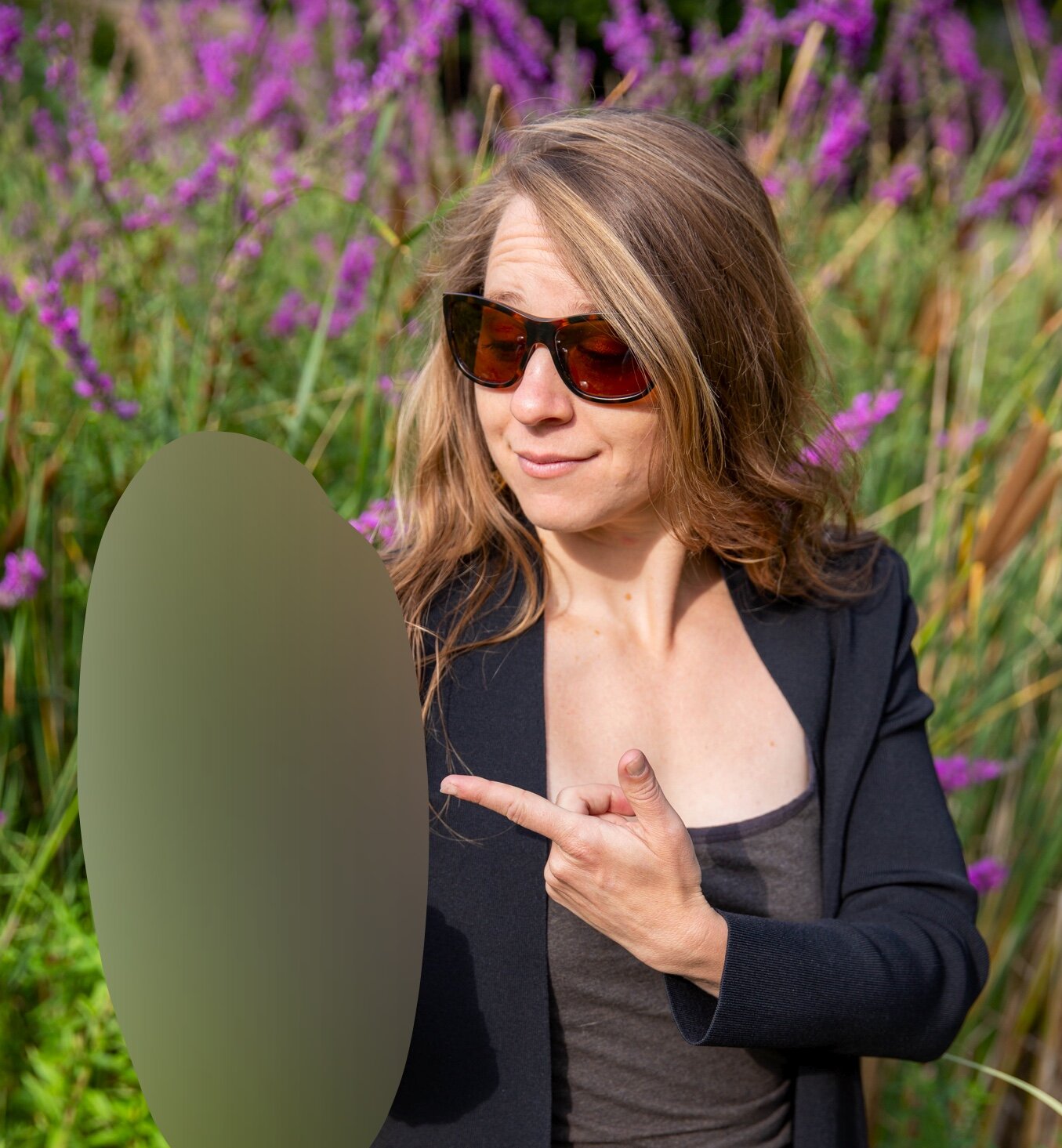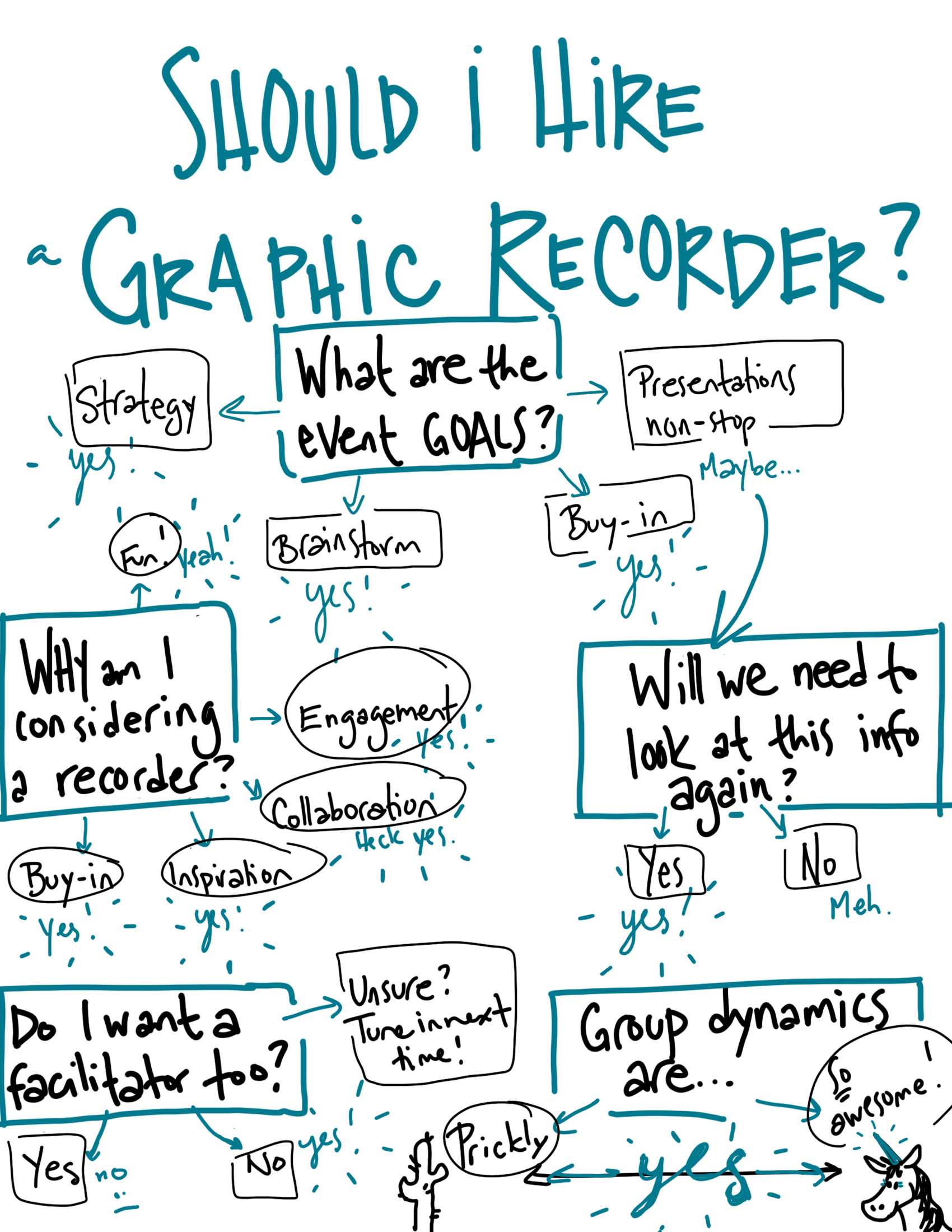Imagine you’re in a class or a meeting, and the teacher or facilitator asks the group a question. Now picture two different paths that can unfold directly after the question is asked:
A) The question asker continues talking, explaining it in a different way without being asked to, or elaborating on the task at hand. Then they immediately ask for someone to share their answer, and before you’ve fully processed, you’re not really listening as others begin to share and you’re still figuring out what you think.
B) After simply asking the question, the question asker says they’re going to pause for a moment to let everyone think. They take some time, but 30 seconds later when they ask for someone to start sharing, you feel present and ready because you’ve had the space to process the question and think about your answer.
I’ve noticed when I’m graphically facilitating and ask a group a question, I tend to want to keep explaining or talking rather than sitting with the silence.
But when I’m a participant being asked a question, if I don’t have the time to process, then I’m either not ready or not listening to others’ responses because I’m scrambling to think of my response.
The simple solution: Take a pause.
What if you’re the one asking the question and you feel uncomfortable with silence? If nobody answers right away, are they even paying attention? Probably!
Explain what you’re doing and why, then pause
Take a drink of water
Count to 5 slowly in your mind to give it something to do
Send the questions ahead of time if you know some folks will want more time to process
(or all of the above)
Once again, thank you from my heart and soul for your support, great senses of humor, brilliant minds, collaboration and what you're each doing to make the world a better place.
Cheers,
Where in the World is ConverSketch?
Fort Collins: Facilitating a creative visioning workshop for the CSU Energy Institute as they look at how to be leaders in climate over the next 10 years. Here’s a custom drawing I did to explain a key aspect of the organizer’s framing talk - we didn’t need any slides the entire day!
In the Studio: Recording the last couple of digitally hand-drawn explainer videos on the books this year before parental leave, wrapping up summary illustrations for regional food dialogues from around the state which will be printed and hung as massive posters at a Summit in December, and preparing to graphically facilitate a series of systems thinking workshops over the next two months! Here’s a snippet of one of the posters:












